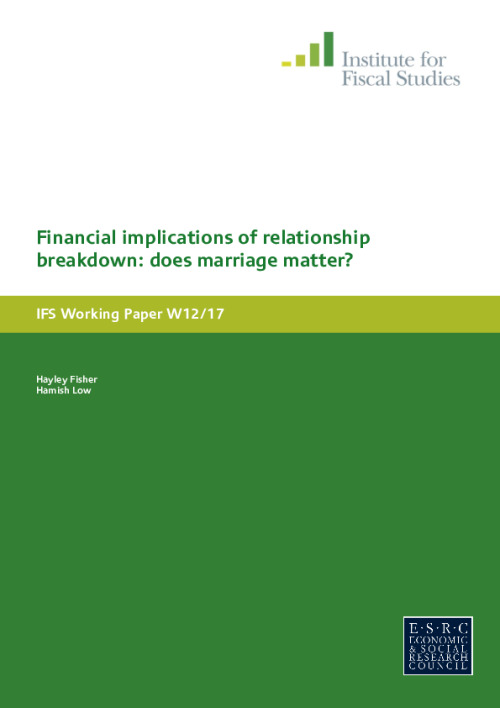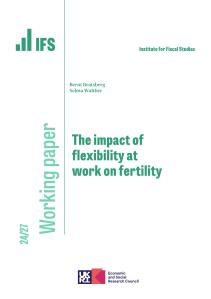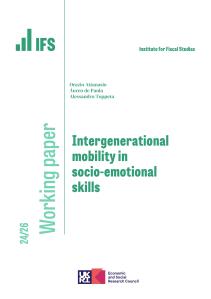Downloads

wp1217.pdf
PDF | 243.89 KB
In raw data in the UK, the income loss on separation for women who were cohabiting is less than the loss for those who were married. Cohabitees lose less even after matching on observable characteristics including age and children. This difference is not explained by differences in access to benefits or labour supply responses after separation. We show that the difference arises because of differences in access to family support networks: cohabitees' household income falls by less because they are more likely to live with other adults, particularly their family, following separation, even after matching on age and children. Divorced women do not return to living with their extended families. The greater legal protection offered by marriage does not appear to translate into economic protection.
Authors

Research Fellow University of Oxford
Hamish is the James Meade Professor of Economics at the University of Oxford, a Professorial Fellow of Nuffield College and a Research Fellow at IFS.

Hayley Fisher
Working Paper details
- DOI
- 10.1920/wp.ifs.2012.1217
- Publisher
- IFS
Suggested citation
Fisher, H and Low, H. (2012). Financial implications of relationship breakdown: does marriage matter?. London: IFS. Available at: https://ifs.org.uk/publications/financial-implications-relationship-breakdown-does-marriage-matter (accessed: 3 July 2024).
More from IFS
Understand this issue

Where next for the state pension?
13 December 2023

Social mobility and wealth
12 December 2023

Autumn Statement 2023: IFS analysis
23 November 2023
Policy analysis

How would the parties’ tax and spending plans affect Scotland and Wales?
28 June 2024

General Election 2024: Manifesto Analysis Presentations
24 June 2024

How do the last five years measure up on levelling up?
19 June 2024
Academic research

The impact of labour demand shocks when occupational labour supplies are heterogeneous
28 June 2024

The impact of flexibility at work on fertility
11 June 2024

Intergenerational mobility in socio-emotional skills
5 June 2024